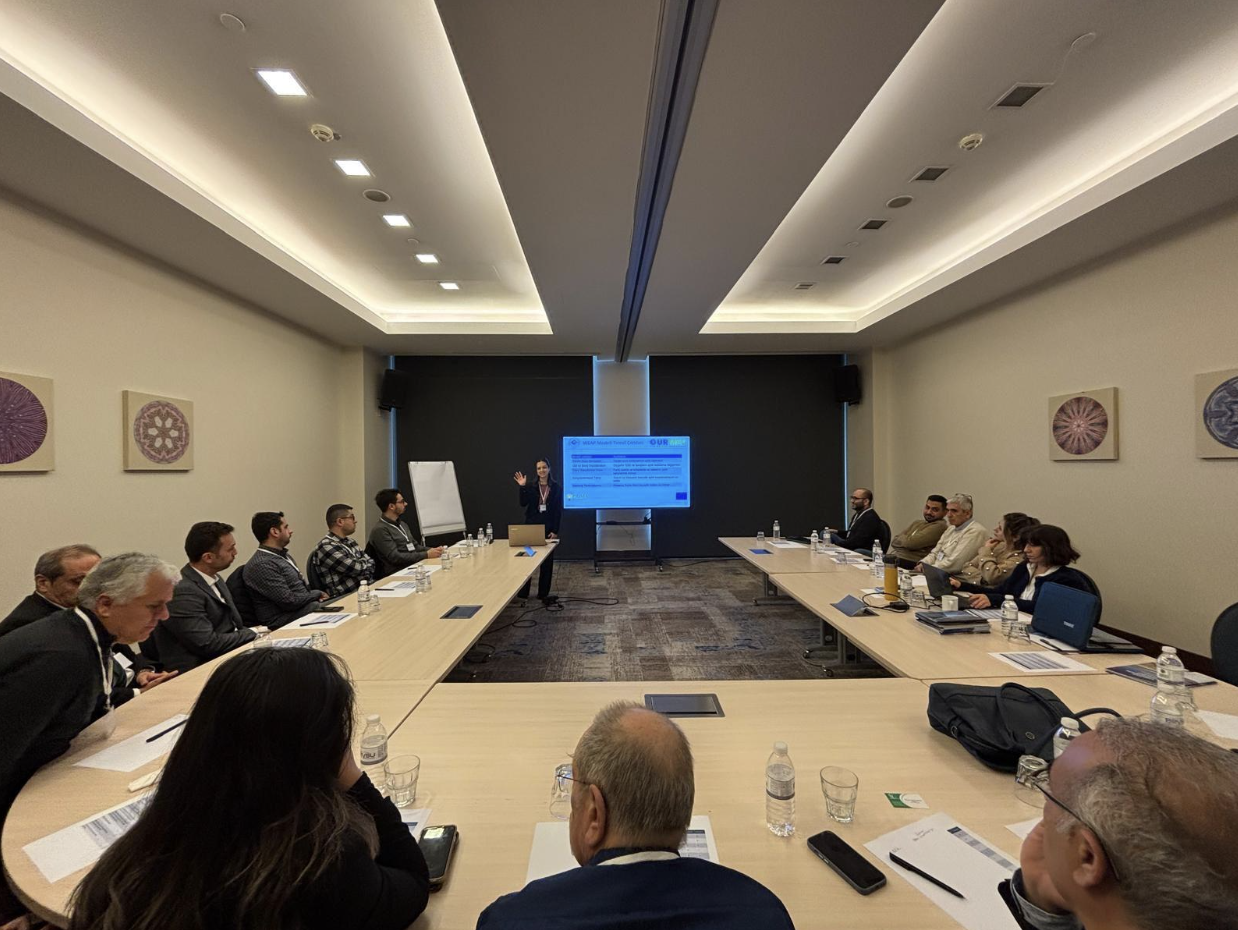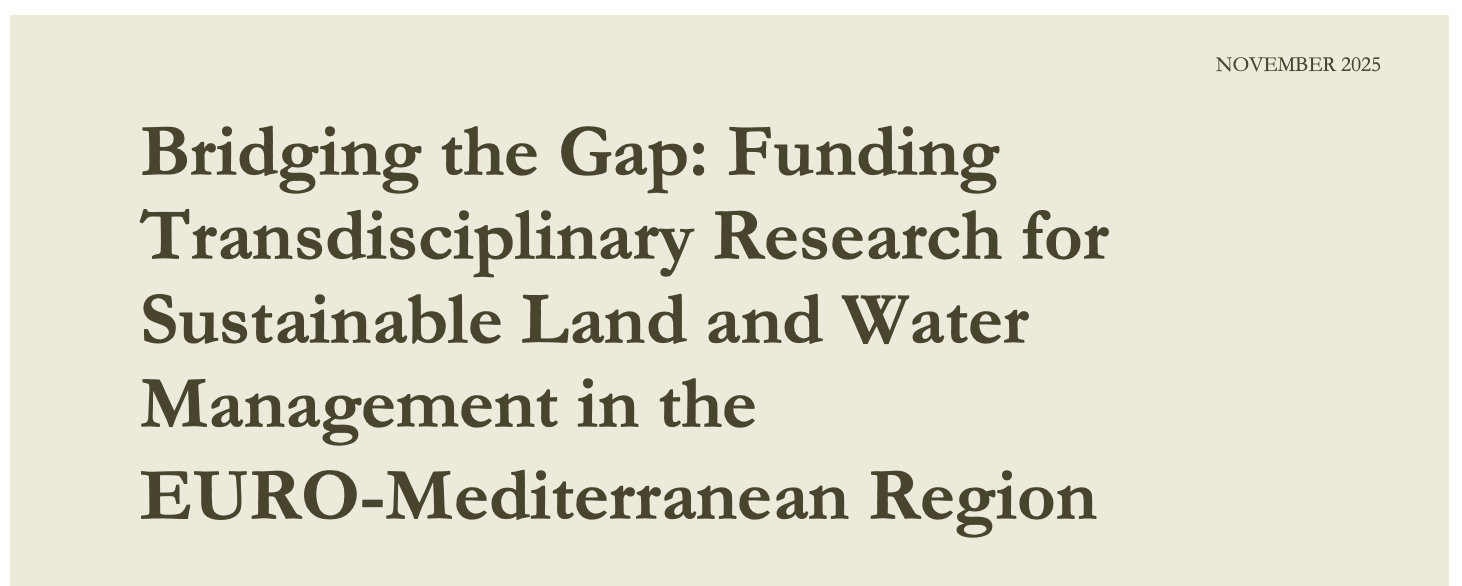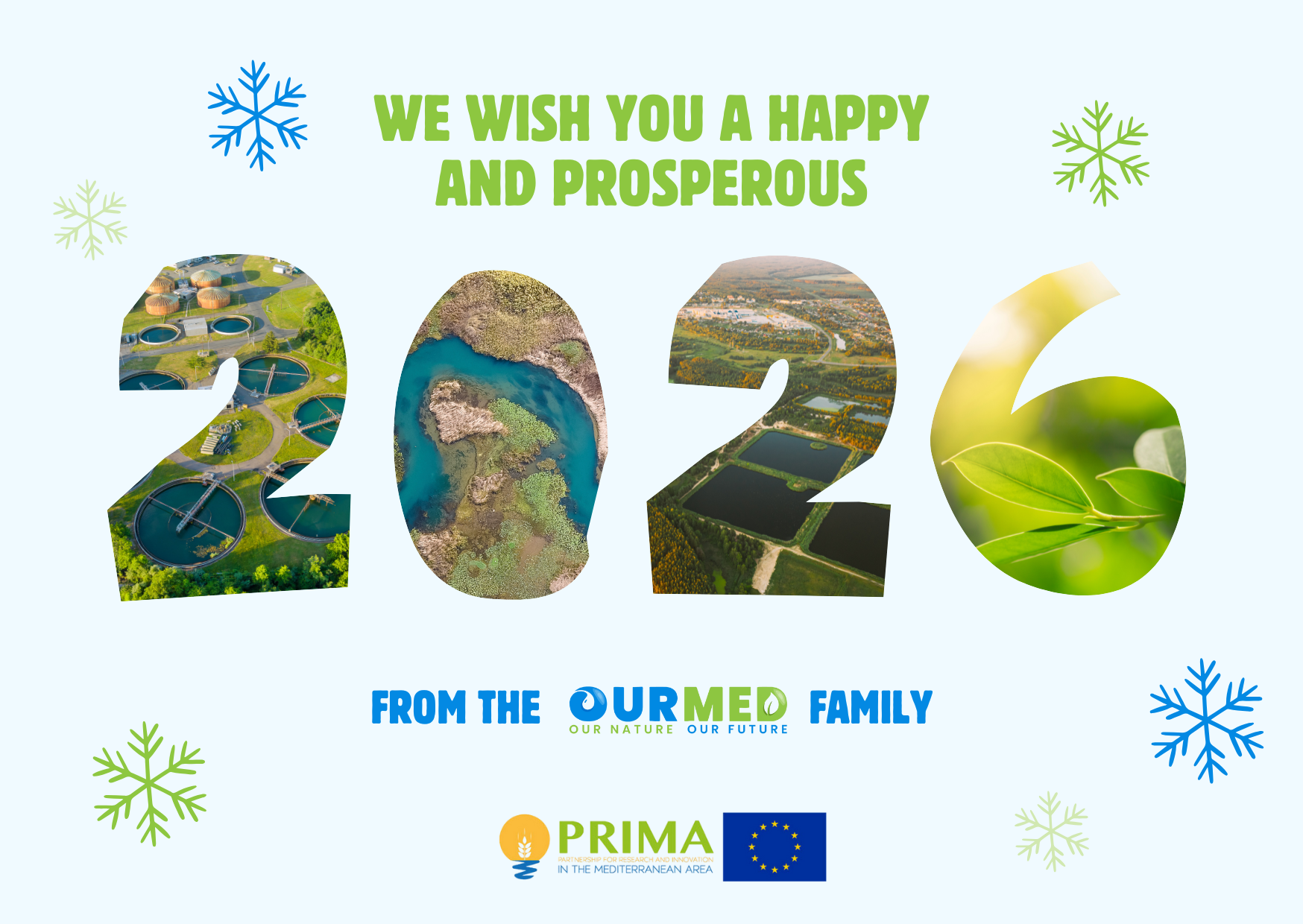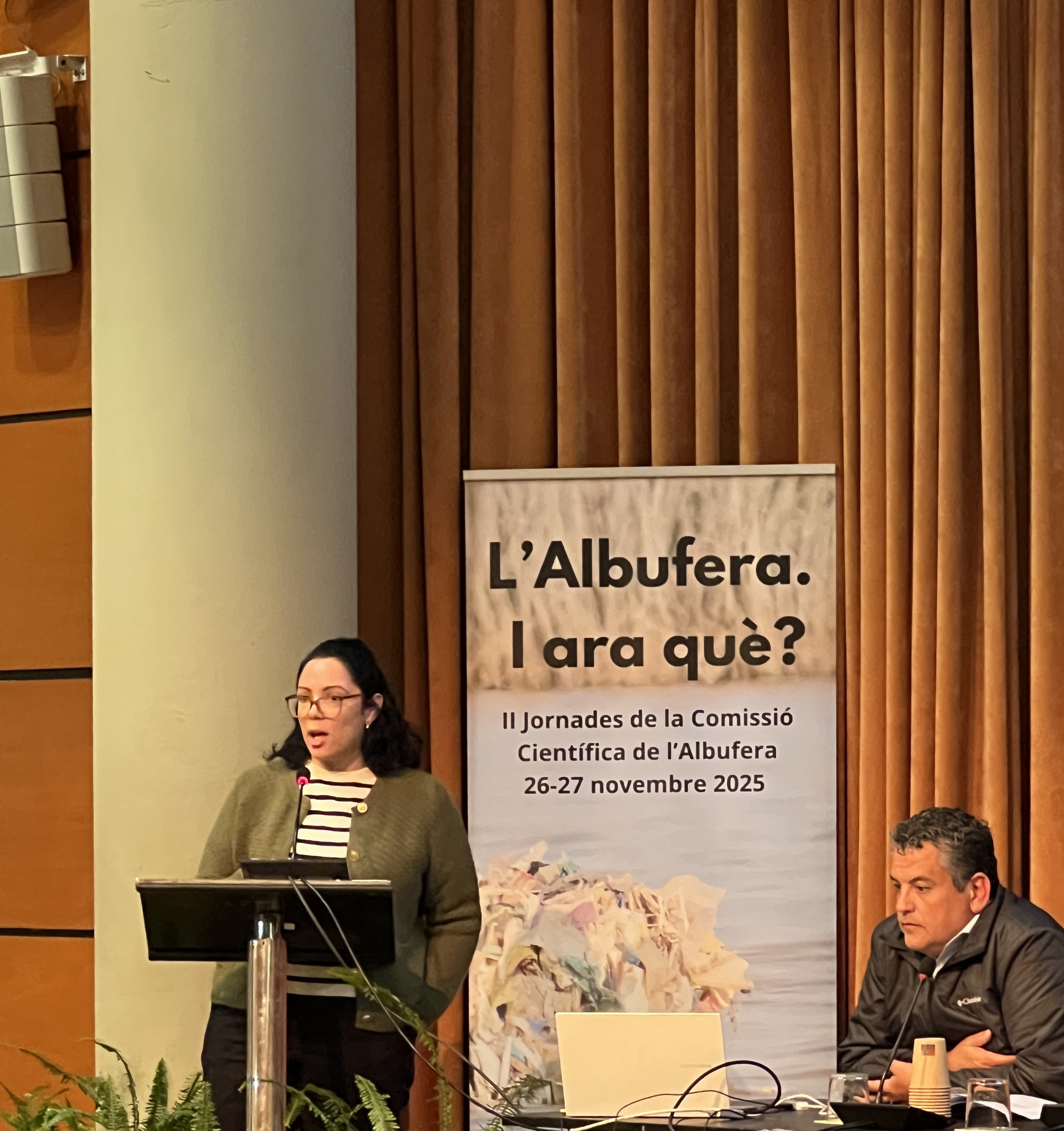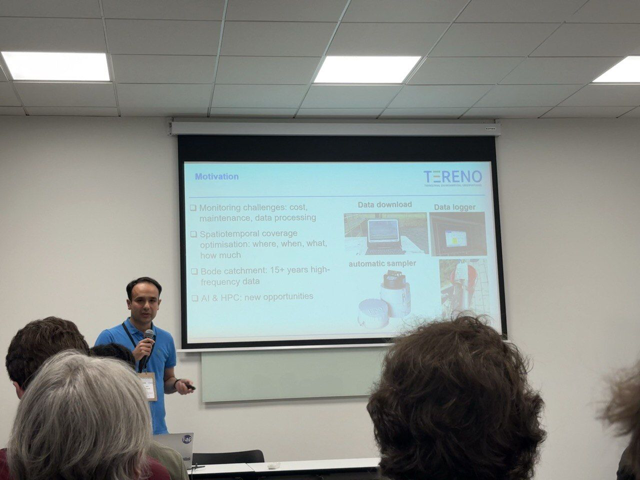The third Konya Living Lab workshop marked a key milestone in the project by sharing and collectively exploring the results generated throughout the research process. Building on the foundations laid in the previous workshops, this final session focused on translating stakeholder-defined scenarios into integrated modelling insights and supporting informed reflection on future pathways for the Konya Closed Basin.
The OurMED project has contributed to a new policy brief titled “Bridging the Gap: Funding Transdisciplinary Research for Sustainable Land and Water Management in the Euro-Mediterranean Region”. This policy brief highlights the growing importance of transdisciplinary research in addressing complex challenges such as soil degradation, biodiversity loss, and water scarcity in the Mediterranean region, identified as a major climate change hotspot.
Congratulations to Siwar Ben Nsir on receiving the OURHERO Award (December 2025)!
We are pleased to announce that Siwar Ben Nsir, a PhD student within the OurMED project, has been selected as the OURHERO Award recipient for December 2025.
Siwar was nominated in recognition of her remarkable progress and scientific achievements in the hydrological assessment of the Bouhertma River basin in northwestern Tunisia. Her work demonstrates strong methodological rigor and clear relevance for water resources management under changing climatic conditions.
Siwar's PhD research is a strong example of the collaborative excellence within the OurMED project. Through a joint doctorate between the University of Jendouba (Tunisia) and University of Parma (Italy), her work brings together: ESIM (PhD Supervisor: Slaheddine Khlifi), UNIPR (PhD Supervisor: Marco D'Oria), and UFZ (PhD Co-supervisor: Seifeddine Jomaa).
As we step into 2026, the OurMED team would like to warmly thank all our partners, stakeholders and community members for their commitment and collaboration throughout the past year.
May this new year bring shared success, innovative solutions and strengthened cooperation in support of sustainable water management and resilient Mediterranean ecosystems.
Discover our latest publications to learn more about the results achieved so far.
On November 26th and 27th, 2025, the UPV team participated in the II Conference of the Albufera Scientific Commission, which took place in Valencia, Spain, to discuss the current conditions of the Albufera wetland, which has significant environmental, social and economic importance for the region. Several sectors were represented at this conference, including associations of rice farmers, fishermen and tourism activities, universities and other scientific institutions, NGOs, environmental agencies, and public administrations.
A PhD researcher funded by the OurMED project recently presented two scientific talks at the 3rd OZCAR TERENO International Conference, held in Paris, France.

